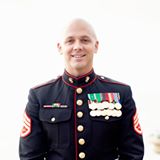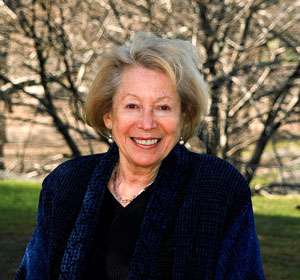As a US Marine, Lucas A. Dyer engaged in combat with the Taliban in Afghanistan’s heroin capital of Helmand. As a small unit leader and platoon commander leading Marines in battle, he fought terrorists and their allies on their home turf, witnessing unspeakable violence in the process. He and his fellow Marines realized that an eye for an eye would not accomplish their objectives so, relying on counterinsurgency operations, they began shaking hands one at a time and ultimately drove the Taliban away. Day by day and week by week, they proved that a small fighting force could work together with Afghans to become brothers-in-arms.
In his memoir, Lucas recalls the events of his time in Afghanistan, sharing true stories from the front lines of how his company was able to win their battles through handshakes.
Hi Lucas, please tell everyone a little about yourself.
 Lucas: I was born in Randolph, Vermont where I grew up a pretty normal life for being raised by a single mother of two. I was an athlete my whole life and achieved honors earning my way into a private school where I was a star hockey player. I then graduated heading off to college where I made a last minute decision in August of 2000 to join the United States Marine Corps and become an Infantry Marine. I deployed four times and served thirteen years on active duty and transferred to the reserves in the summer of 2013. I started writing professionally in 2012 where I was picked up by Jiu-Jitsu Magazine and wrote monthly articles on nutrition for the Mixed Martial Arts (MMA)/Jiu-Jitsu community. My current book, A Battle Won by Handshakes, was a project I started in 2010 after returning from combat in Afghanistan. It was completed and published in June of 2014. It currently is the number 1 best seller iUniverse.
Lucas: I was born in Randolph, Vermont where I grew up a pretty normal life for being raised by a single mother of two. I was an athlete my whole life and achieved honors earning my way into a private school where I was a star hockey player. I then graduated heading off to college where I made a last minute decision in August of 2000 to join the United States Marine Corps and become an Infantry Marine. I deployed four times and served thirteen years on active duty and transferred to the reserves in the summer of 2013. I started writing professionally in 2012 where I was picked up by Jiu-Jitsu Magazine and wrote monthly articles on nutrition for the Mixed Martial Arts (MMA)/Jiu-Jitsu community. My current book, A Battle Won by Handshakes, was a project I started in 2010 after returning from combat in Afghanistan. It was completed and published in June of 2014. It currently is the number 1 best seller iUniverse.
When did the writing bug bite, and in what genre(s)?
Lucas: I first got into writing in early 2010 when I started working on my recently published book A Battle Won by Handshakes. The genre is non-fiction/military/bio. Along the side of working on this book, I wrote weekly blogs on nutrition for athletes and later got picked up by a popular MMA magazine called Jiu-Jitsu Magazine. Jiu-Jitsu Magazine has become the second most sold magazine under UFC for MMA.
When you started writing, what goals did you want to accomplish? Is there a message you want readers to grasp?
Lucas: When I got the idea to write this book, I wanted to finish it as soon as possible. I felt that that book should come out sooner than later so it would be relevant to the current war in Afghanistan at that time. However I realized that it wasn’t that easy. There were a lot of details and facts to check on. Names of places, people and events that I had to research to make sure I was correct on all accounts. I wanted it to be perfect so not to upset anyone by quoting someone incorrectly. After talking to several other authors, they all shared one final thought in common, to take my time and don’t rush. They told me to write a little, take a break, and to write some more, then take a break. It ended up being the best advice I had received.
Briefly tell us about your latest book. Is it part of a series or stand-alone?
 Lucas: My recent book is titled A Battle Won by Handshakes and as of now it is a stand-alone. I do have ideas for another one to follow but I will keep them to myself. The book is about my experiences as a United States Marine fighting against the Taliban in Helmand Afghanistan. What was unique about this battle was that after a short period of time we realized that fighting the Taliban with weapons was a very challenging task so we utilized a tactic called counterinsurgency (COIN) operations. The idea was to get the Local Nationals on our side, and gain their trust. In turn they would help provide information free of fear instilled by the Taliban. Our unit was very successful in doing so and it makes for a great story. It gives amazing insight to what goes on in combat for those who have always wondered.
Lucas: My recent book is titled A Battle Won by Handshakes and as of now it is a stand-alone. I do have ideas for another one to follow but I will keep them to myself. The book is about my experiences as a United States Marine fighting against the Taliban in Helmand Afghanistan. What was unique about this battle was that after a short period of time we realized that fighting the Taliban with weapons was a very challenging task so we utilized a tactic called counterinsurgency (COIN) operations. The idea was to get the Local Nationals on our side, and gain their trust. In turn they would help provide information free of fear instilled by the Taliban. Our unit was very successful in doing so and it makes for a great story. It gives amazing insight to what goes on in combat for those who have always wondered.
Who’s the most unusual/most likeable character?
Lucas: Although I don’t really have characters so-to-speak. There are stories about Marines in this book that I feel have the reader cheering for them to survive. There were some close encounters with death and several of us were lucky at times. On the opposite end there are also some who were not so lucky and did not make it back. One in particular that has grabbed the hearts of many was one of my Marines Lance Corporal Donald Hogan who was killed August 26, 2009 protecting his Marines. His story is remarkable and has earned him the second highest medal under the Medal of Honor for his bravery.
Do you have specific techniques to help you maintain the course of the plot?
Lucas: I found it very helpful to write a little bit, then turn away for a week or so to collect my thoughts. It helped me feel more organized to write several pages, and then walk away. This technique was useful.
How does your environment/upbringing color your writing?
Lucas: The most influential aspect that helped my writing was being a Marine and having first-hand experience on the subject being written about. My upbringing only added to the drive and determination to be able to say “I am a published author”.
Share the best review (or a portion) that you’ve ever had.
Lucas: The reviews are amazing. I have been blessed with so many fans. However the ones that really get to me are the ones from fellow Marines that I served with, who have had a hard time dealing with some of the losses on this deployment. When they tell me the book heals, or helps them, I really tear up. Here is a recent one:
So today I decided to open your book and it brought back a lot of emotions that I knew would resurface. It took me many years to accept what happened and I tried to live a better life for Swanson. As the pages started turning, an old life style, and brotherhood I miss so much came to life. I have not finished reading your book yet, and to be honest I don’t want the book to end. Your book has brought back many memories of the brotherhood I miss so much. I still have many memories of good times we have shared. I want to thank you for sharing your story. I hope all is we’ll and I look forward to seeing your book at #1. Semper Fi brother.
What are your current projects?
Lucas: I am currently working on a Sports Nutrition book for the MMA/Jiu-Jitsu athlete. I have a years’ worth of nutritional articles that I am slowly turning them into a nutritional guide.
Where can folks learn more about your books and events?
Lucas: It can be purchased online at iUniverse, Amazon, Barnes and Noble and Indigo book stores. I have copied the links in for easier assistance. Also my facebook page keeps everyone in the loop with what’s happening.
Facebook: A Battle Won by Handshakes The Story of Alpha Company
iUniverse: A Battle Won by Handshakes
Amazon: A Battle Won by Handshakes
Barnes and Noble: A Battle Won by Handshakes
Thanks for joining us today, Lucas.
Lucas: Thank you for your time.





















 Stumble It!
Stumble It!

